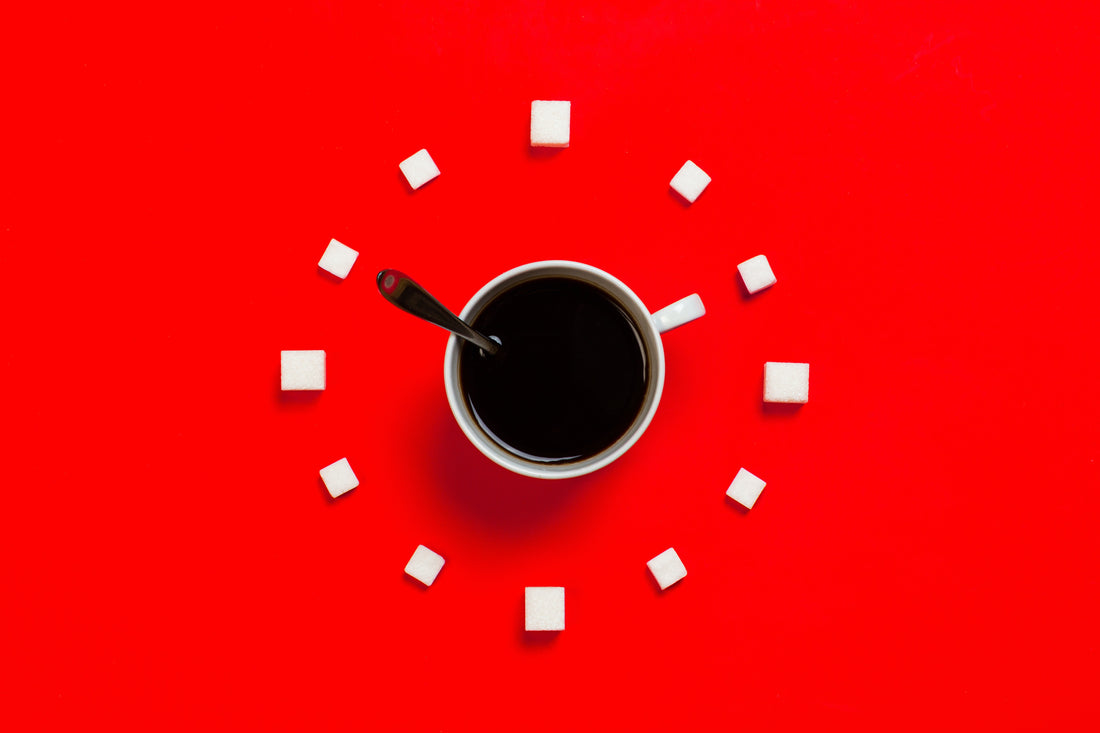
Caffeine: How much is too much? Microground tea as an alternative
Share
Caffeine has become an integral part of a large portion of the population's daily lives, due to its natural ingredients that act as stimulants. Whether it's young students needing a late night energy boost or corporate workers trying to stay productive during long conference calls - caffeine is always there providing us with what we need. But just how much is too much? While many people may be used to the regular morning cup of coffee or tea, excessive amounts can have dangerous effects on our physical and mental health. In this article, we'll discuss why moderation is key when consuming caffeinated products, in addition to introducing microground tea as one potential alternative for getting your day-to-day dose without overdoing it.
The Impact of Caffeine on Health: What Are the Recommended Limits?
Caffeine has a significant impact on our overall health, and it's important to understand the recommended limits for its consumption. While caffeine can provide many benefits such as increased alertness, reduced fatigue, and improved memory performance in moderate amounts, excessive intake can lead to several unfavorable effects such as insomnia, anxiety, stomach upset or even heart palpitations.
According to the Health Canada guidelines, up to 400 milligrams of caffeine per day is considered safe for most adults. However, this limit may vary depending on individual factors such as age or medical conditions. pregnant women are advised not to consume more than 200 milligrams of caffeine per day since high levels have been linked to an increased risk of low birth weight or miscarriage.
For those looking for alternatives that offer a gentler boost without exceeding their daily limits of caffeine intake - microground tea is emerging as a popular solution; it boasts natural ingredients that provide a smoother energy increase and better long-term productivity than high-intensity caffeinated drinks with added sugar. With so many options out there today – from coffee makers boasting patented techniques to craft your preferred brew method- it's essential always to be mindful about moderation when consuming caffeine products regularly in order maintain long-term health benefits over time!
Exploring Alternatives to Caffeine: Is Microground Tea the Answer?
Excessive caffeine intake can lead to adverse side effects such as anxiety, insomnia, heart palpitations and restlessness. As a result of these negative consequences, many individuals are seeking alternatives to traditional sources of caffeine like coffee or tea.
One potential new solution on the market is microground tea: a finely powdered version of regular loose-leaf tea that promises an even more concentrated dose of antioxidants and other beneficial plant compounds than traditionally brewed offerings. While it lacks some of the bitter taste common in traditional hot-water-soaked teas due to its consistency and electrical power production style which yields a foamier brew with no sediment at all - it might just be the answer those looking for an alternative needed. However further research is necessary before we see widespread use as there may have yet unidentified health risks from this novel form (or preparation method) of utilising tea leaves. For people considering cutting down their daily go-to tools like coffee because questioning if current consumption patterns could be doing more harm than good – microground tea may well offer another method they haven't tried previously worth investigating!
Managing Caffeine Intake: Tips and Tricks for Staying Within the Recommended Limits
When it comes to managing caffeine intake, one of the most important factors is knowing how much is safe for your individual body. The recommended daily limit for adults ranges from 400-600 milligrams, which can be found in about four cups of coffee or two energy drinks. It's important to keep in mind that caffeine content can vary widely between different beverages and brands.
To stay within these limits, there are a few tips and tricks you can use. First, try switching to lower-caffeine alternatives like microground tea or green tea. These options still provide the energizing benefits of caffeine but with a milder effect on the body. You may also want to gradually reduce your intake over time or cut back on particularly high-caffeine beverages like espresso shots.
Another helpful strategy is paying attention to when and how much caffeine you consume throughout the day. Avoid having large amounts before bedtime as this could disrupt your sleep patterns and leave you feeling groggy in the morning. Additionally, make sure to balance your caffeine intake with enough water and other healthy fluids so as not to become dehydrated.
Ultimately, managing your caffeinated beverage choices takes some effort but doing so will support better health outcomes both physically and mentally long-term.
